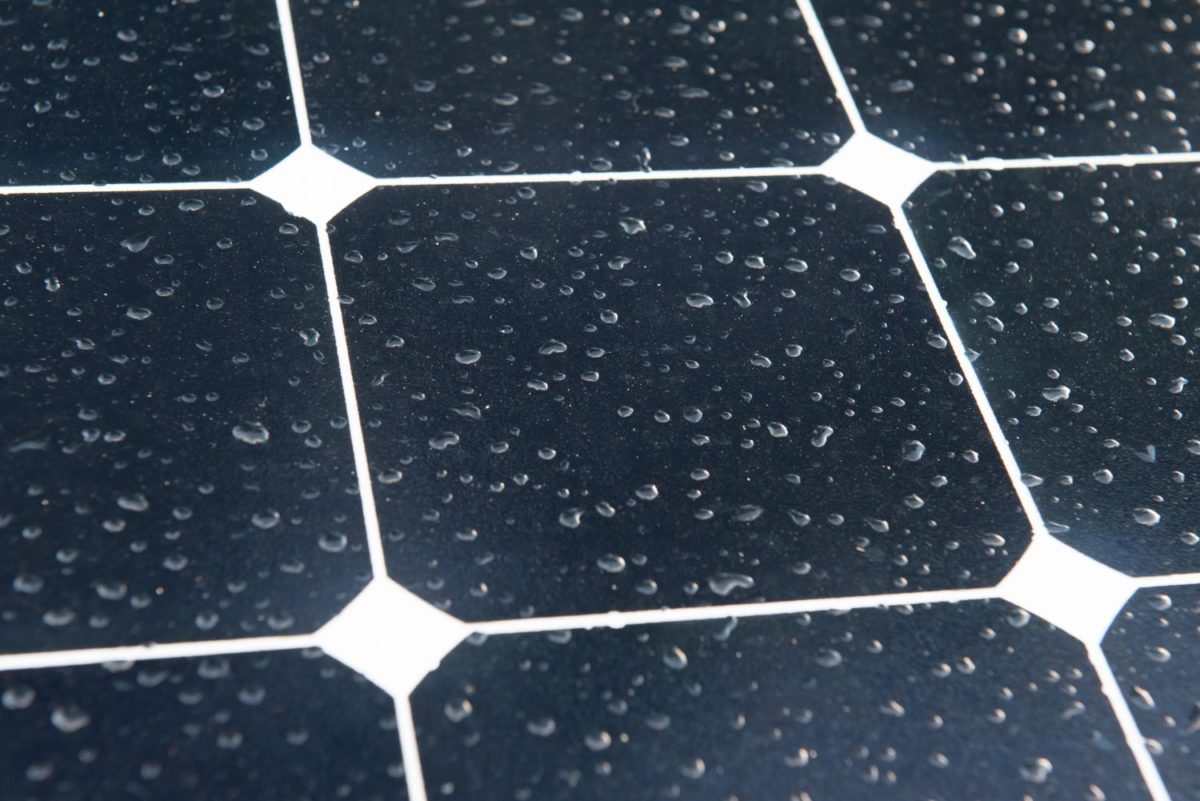Research published by AMOLF has shown that in cloudy climates, such as that of northern Europe, tandem perovskite/silicon solar cells do not perform significantly better than standard silicon cells. The research also outlines a series of optimizations to improve perovskite quality, electrical contacts and light management, which could allow the cells to realize their potential and perform at much higher levels.
The researchers developed a model to simulate state-of-the-art perovskite solar cells, by combining an optical model based on EQE measurements with an analytical electrical model based on current-voltage characteristics.
Results showed that, even with cells rated at higher efficiencies, performance of tandem perovskite/silicon cells would only be marginally higher than that of the silicon cell alone, in the cloudy climates of the test locations in Utrecht, the Netherlands and Denver, USA.
Discounting all parasitic absorption in the transparent contacts of the perovskite cell, say the researchers, the tandem cells exhibited efficiency advantages of between 1.8% and 3.3%, far less than expected under ideal conditions.
“This has been a surprising finding,” states lead author of the study Moritz Futscher. “We have always thought that tandem cells operate at lower efficiency under low light conditions, but we are surprised that the effect is this large.
The research, published in ACS Energy Letters, also shows that tweaking factors such as the parasitic cell resistance, optical losses and nonradiative recombination could boost this efficiency by as much as 14%, including in cloudy or low light conditions.
“Perovskite solar cells have shown breathtaking development in efficiency in recent years,” states the research publication. “Yet, our results highlight the need for a concerted effort in material development, device design and light management strategies to further increase the efficiency of perovskite cells, and develop highly efficient perovskite/Si tandem solar cells.”
This content is protected by copyright and may not be reused. If you want to cooperate with us and would like to reuse some of our content, please contact: editors@pv-magazine.com.




By submitting this form you agree to pv magazine using your data for the purposes of publishing your comment.
Your personal data will only be disclosed or otherwise transmitted to third parties for the purposes of spam filtering or if this is necessary for technical maintenance of the website. Any other transfer to third parties will not take place unless this is justified on the basis of applicable data protection regulations or if pv magazine is legally obliged to do so.
You may revoke this consent at any time with effect for the future, in which case your personal data will be deleted immediately. Otherwise, your data will be deleted if pv magazine has processed your request or the purpose of data storage is fulfilled.
Further information on data privacy can be found in our Data Protection Policy.